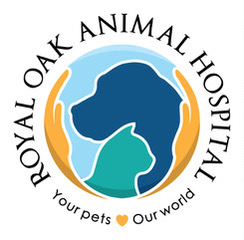Library
-
Thrombocytopenia is a condition of low blood platelets, resulting in abnormal hemorrhage and possible anemia. There are many causes, including severe or prolonged blood loss, increased internal destruction of platelets, or impaired bone marrow production. Several diseases and medications are also associated with thrombocytopenia. Treatment may require the replacement of platelets along with treatment of the specific underlying cause.
-
Thrombocytopenia is a condition of low blood platelets, resulting in abnormal hemorrhage and possible anemia. There are many causes, including severe or prolonged blood loss, increased internal destruction of platelets, or impaired bone marrow production. Several diseases and medications are also associated with thrombocytopenia. Treatment may require the replacement of platelets along with treatment of the specific underlying cause.
-
The Tibetan Mastiff has been a guardian for centuries, and she remains territorial, independent, and strong willed. While devoted and gentle to her family, her sheer size can topple a youngster.
-
The Tibetan Spaniel is a lovely dog, both charming and fascinating. The Tibetan Spaniel has the intriguing quality of being a quiet dog - until, that is, he discovers someone with whom he's not familiar. This small breed's beauty lies in his full-size confidence.
-
The adaptable, affable Tibetan Terrier is a great choice for the dog owner whose idea of exercise is a walk around the block. Although the long coat can be challenging to care for, it is well worth the effort when admirers stop during a stroll to ooh and ahh over this dog.
-
**This article has been specifically written for pet sitters and how they can reduce their exposure to COVID-19.** COVID-19 is a new respiratory disease in humans, initially discovered late in 2019. Although all coronaviruses are related, they are not all the same virus. As a pet sitter, it is important to limit direct contact with your clients. People can shed the virus without showing any symptoms of disease, so it is important to practice social distancing even with clients who appear healthy. It is also important to limit your contact with potentially contaminated items in your clients’ homes, whether they are at home or not. The most important things you can do to minimize your risk of infection, and minimize the risk of transferring infection to your clients, is to be cautious when interacting with clients and when touching anything that could be contaminated. Communicate with your clients regularly during this pandemic. Having information about your clients’ health can help you avoid taking unnecessary risks. Finally, if you develop any signs of COVID-19, including cough, fever, and/or shortness of breath, it is important that you stay home from work.
-
Toad poisoning occurs when a cat is exposed to the toxins secreted by certain species of toads. The two most common species of toads that cause poisoning in the United States are the cane or marine toad and the Colorado River or Sonoran desert toad. While there are toads in Canada that secrete toxic substances, their effects are much less severe than the toxins secreted by the cane or Sonoran desert toads. Death can occur quickly and immediate treatment is required.
-
Toad poisoning occurs when a dog is exposed to the toxins secreted by certain species of toads. The two most common species of toads that cause poisoning in the United States are the cane or marine toad and the Colorado River or Sonoran desert toad. While there are toads in Canada that secrete toxic substances, their effects are much less severe than the toxins secreted by the cane or Sonoran desert toads. Death can occur quickly and immediate treatment is required.
-
The tonsils are similar to lymph nodes, and the role of both of these structures is to fight infection. There is a pair of tonsils located in small pouches at the back of the throat that enlarge during infection or inflammation. Tonsillitis usually occurs as a result of another disease that affects the mouth or throat. If an underlying source of the infection can be found, it must be treated.
-
Total ear canal ablation and bulla osteotomy (TECA-BO) is a surgery performed to remove the ear canal and a portion of the middle ear. This surgery is performed in cases where the pet is suffering from chronic and unresponsive ear infections. The surgical technique, reasons for performing the procedure, the diagnostic steps, and potential post-op complications are outlined in this handout.


